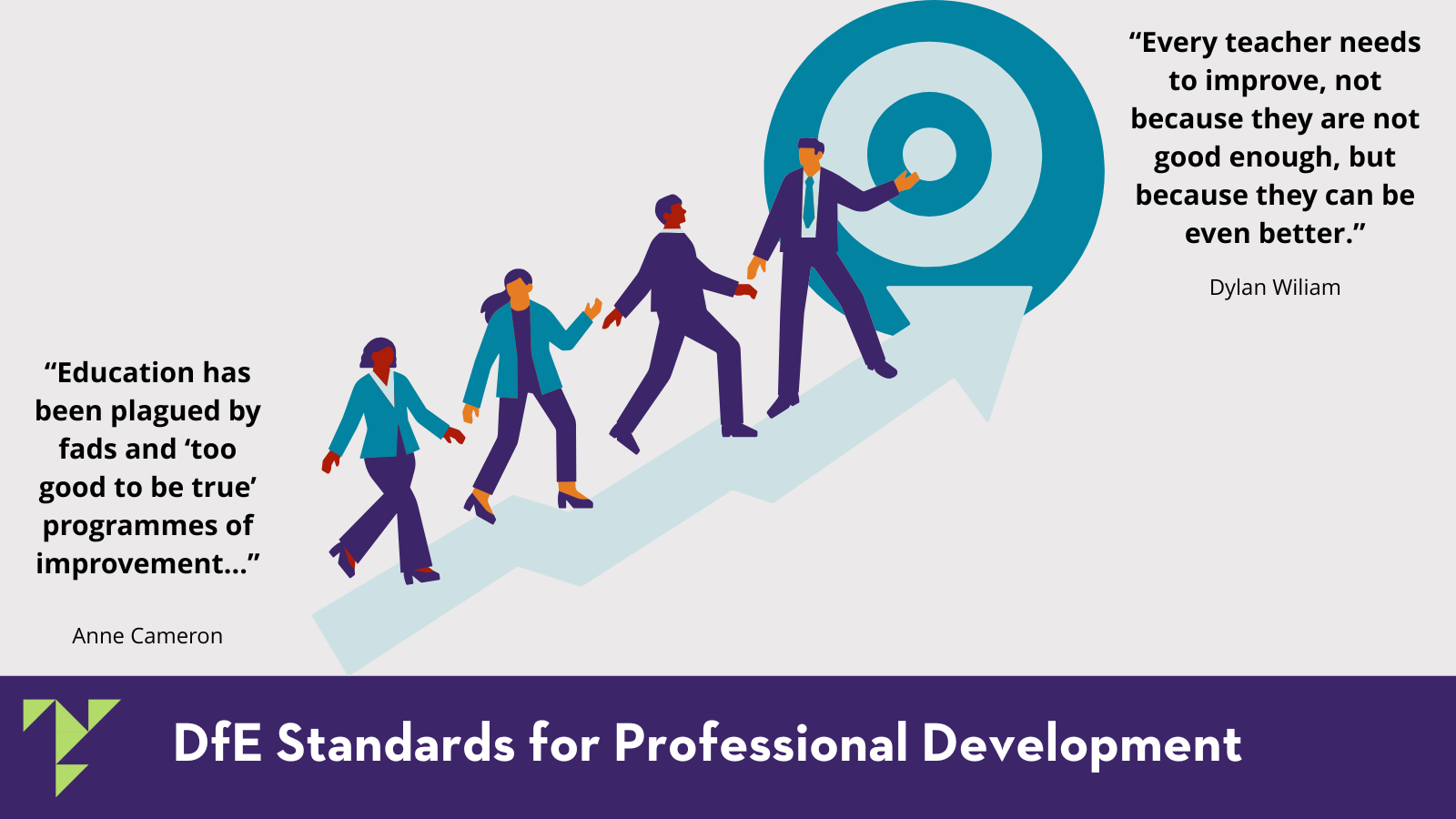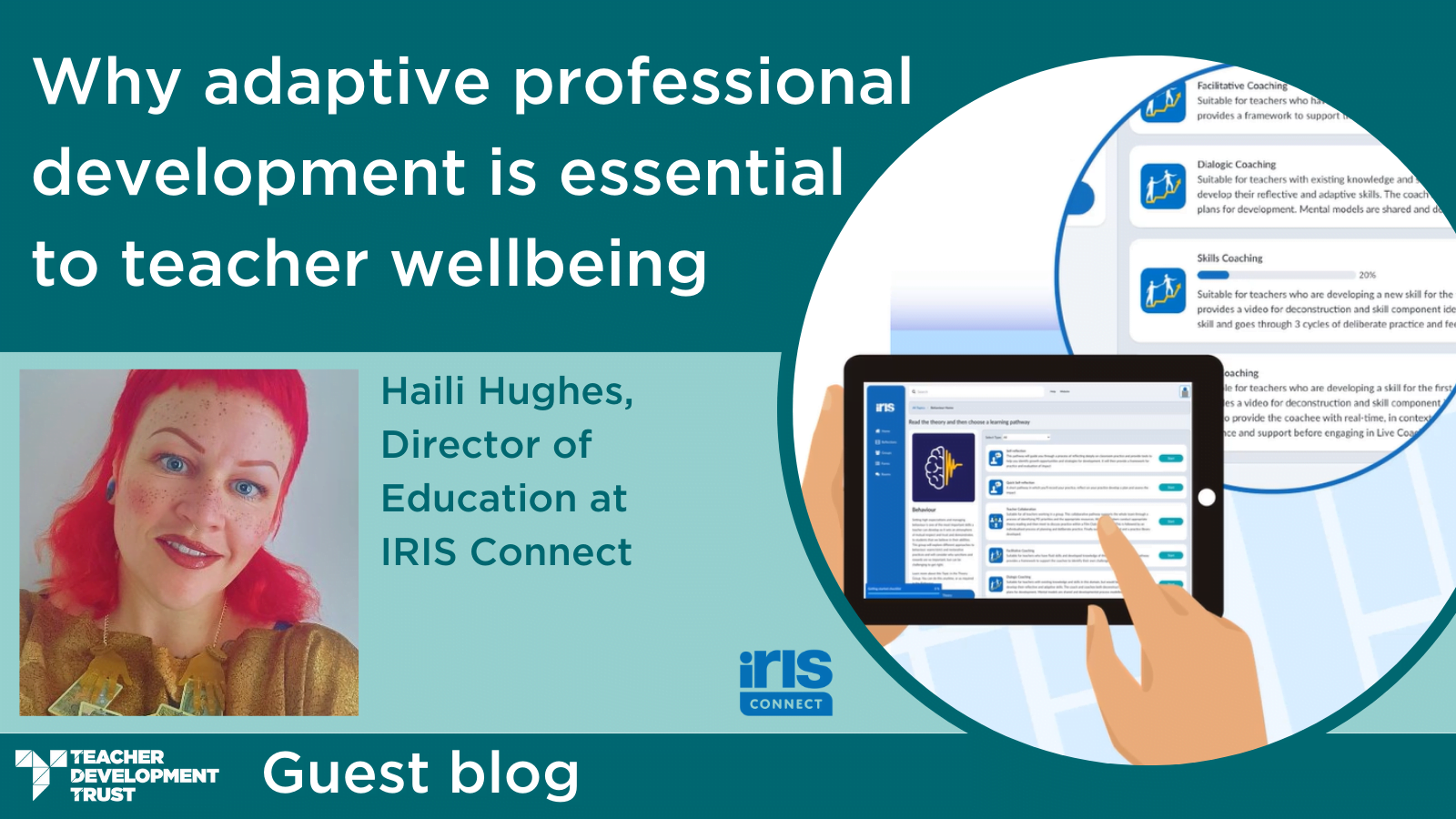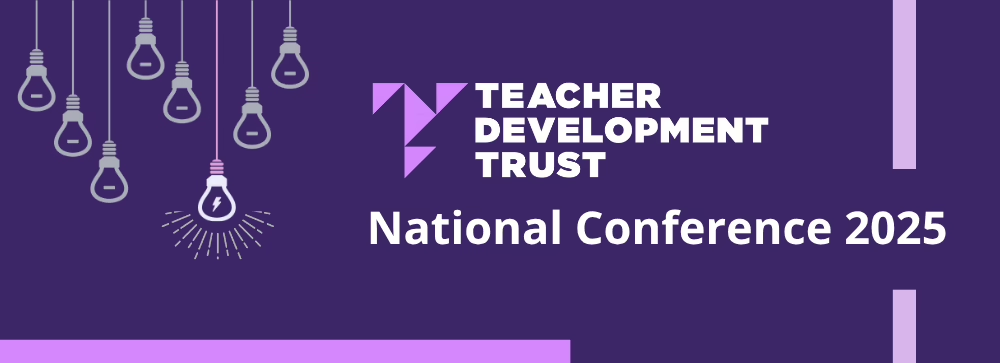“Education has been plagued by fads and ‘too good to be true’ programmes of improvement. School leaders tell us how hard they find it to navigate the bewildering array of options, to discern what is based on solid evidence and what is the latest pseudo-offer. A set of coherent and consistent standards for all CPD offers clarity on what good should look like, and helps to strengthen the professional identity of teachers.” Anne Cameron, Director of Partnerships and Impact, Teacher Development Trust
Common standards for entry and progression are a core feature of all professions. They give confidence to parents and children, and they help teachers and school leaders make more effective decisions about their own performance and development.
Our founding CEO, David Weston, was asked to chair the CPD Expert Group by the Department for Education, bringing together a group of experts who shaped the current Standards for Teachers’ Professional Development.
The group reviewed existing advice and standards from across the world and different professions. Together, they undertook a large-scale consultation with hundreds of individuals and organisations, exploring the highest quality research on what types of professional development seem to make the biggest difference to teachers’ and students’ learning
What does the review tell us?
“Every teacher needs to improve, not because they are not good enough, but because they can be even better.” Dylan William
In July 2016, the Department for Education published a new Standard for Teachers’ Professional Development for all schools in England.
The Standard sets out a clear description of what effective continuing professional development (or CPD) looks like for teachers. To make good practice happen, action must be taken by school leaders, teachers and external providers or experts. Only when all three stakeholders act in concert will the CPD have long-term, positive impacts on students’ learning.
The document is intended to improve understanding, to be used to develop effective and long-term plans and to hold other stakeholders to account for their role in the process.
It should be something which all staff in your school are aware of and which anyone with responsibility for leading aspects of CPD should use and discuss regularly. This should include middle leaders, training facilitators, all senior leaders and governors.
What do school leaders need to know?
1. Professional development should have a focus on improving and evaluating pupil outcomes.
2. Professional development should be underpinned by robust evidence and expertise.
3. Professional development should include collaboration and expert challenge.
4. Professional development programmes should be sustained over time.
And all this is underpinned by, and requires that:
5. Professional development must be prioritised by school leadership
Turning research into practice
We use the findings of this report in the development of our own programmes, including our flagship CPD Leadership qualification and our Building Expert Schools Programme. A good place to start is our Online Learning Modules, including on Learning How to Foster Trust for Professional Development. Find out more via our CPD Leadership Hub.




